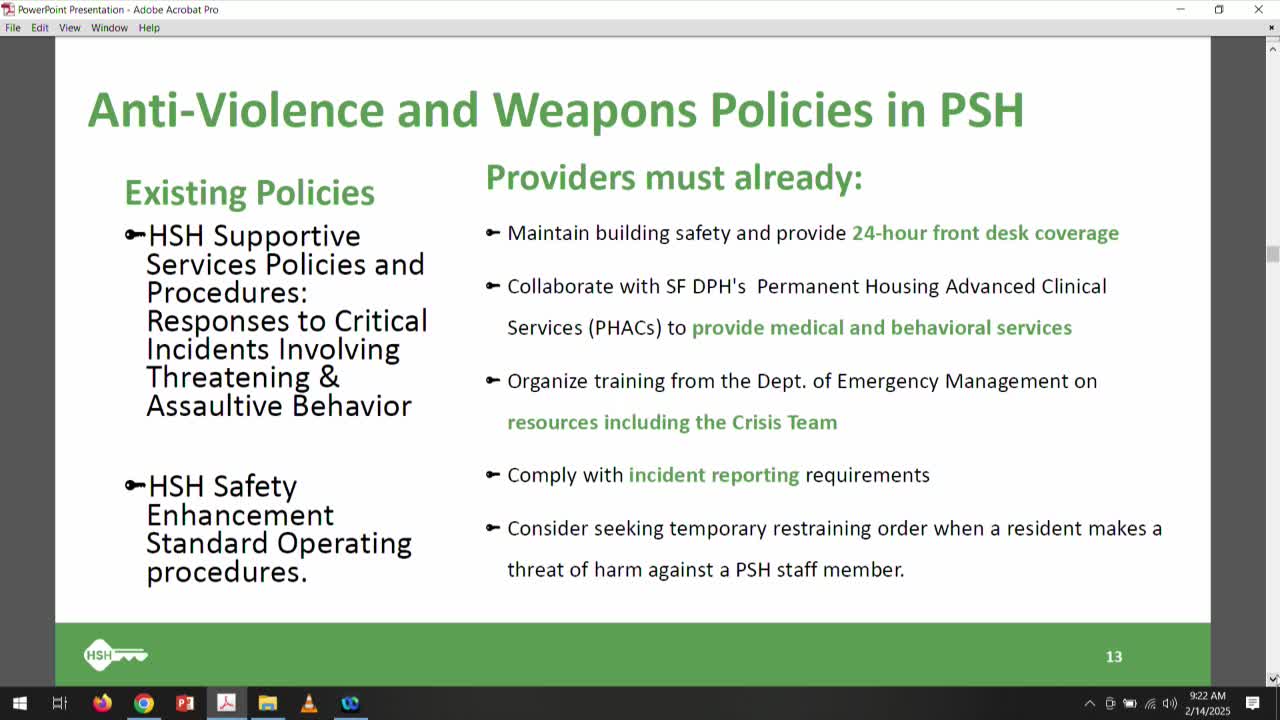Article not found
This article is no longer available. But don't worry—we've gathered other articles that discuss the same topic.
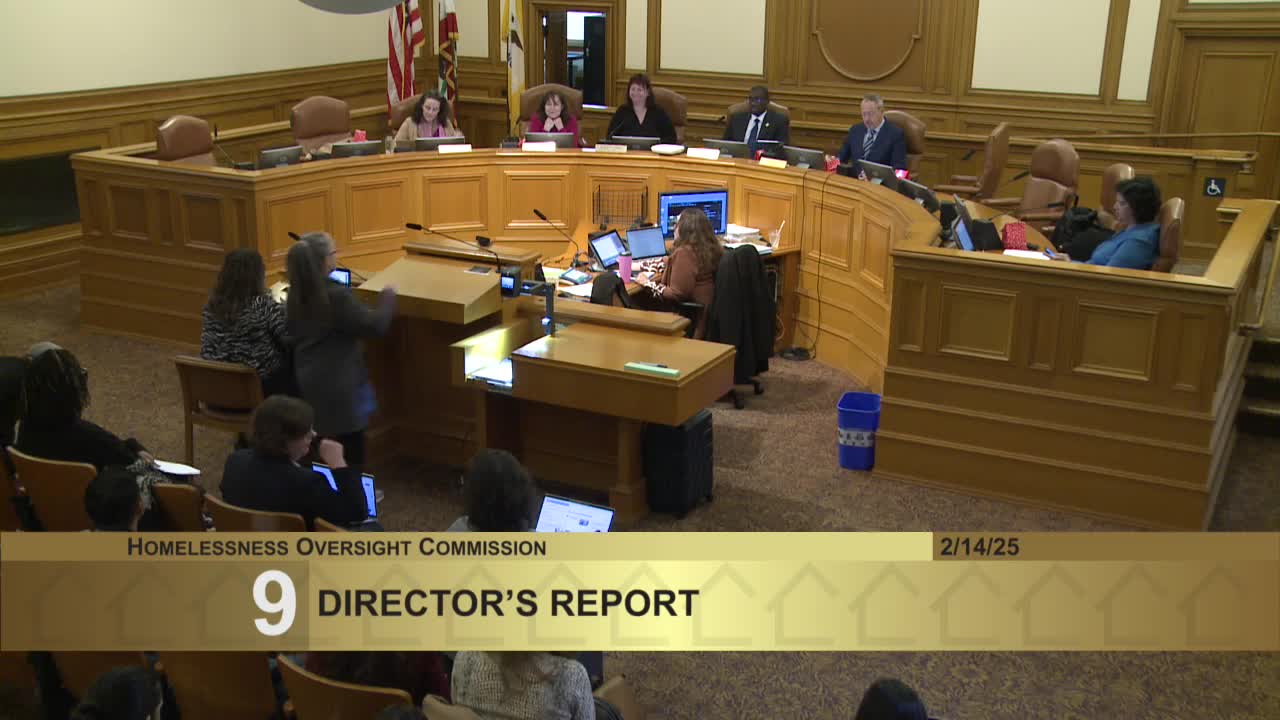
Providers and advocates urge restoration of problem-solving funds; HSH says no additional funds identified this fiscal year
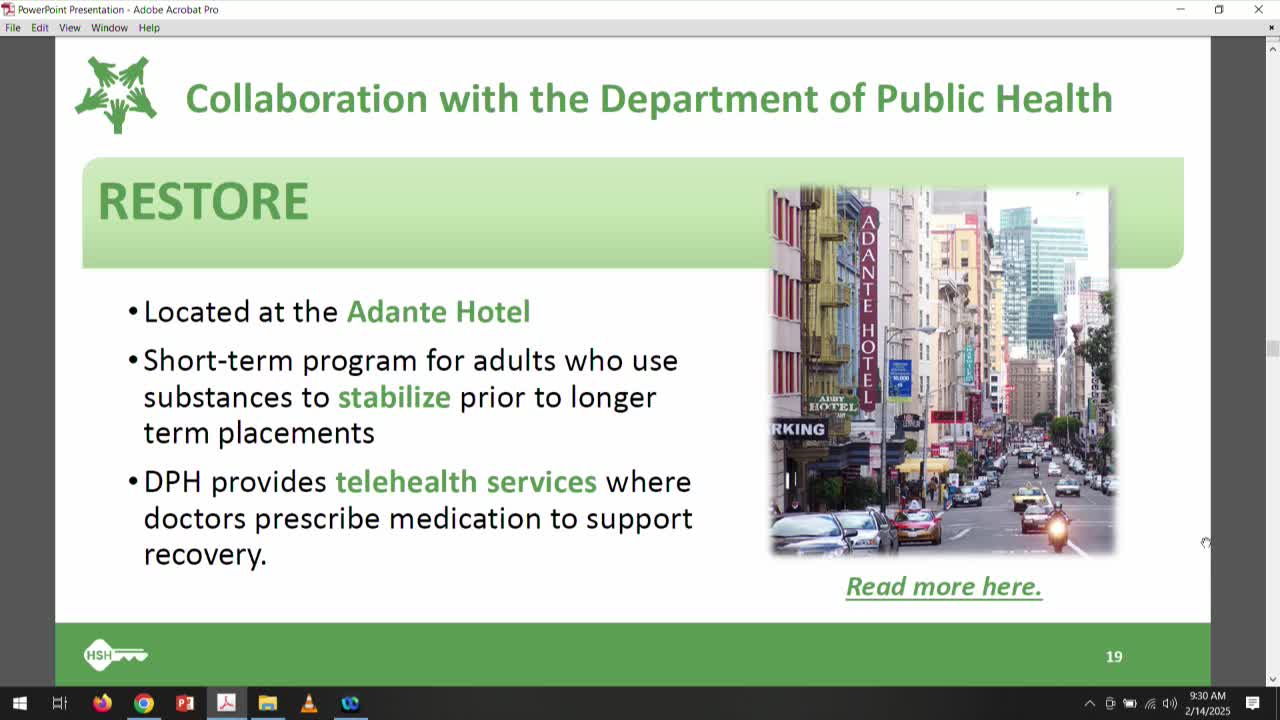
HSH highlights Restore pilot, Shelter Health and FACS partnerships with DPH; new inflow-outflow dashboard goes live
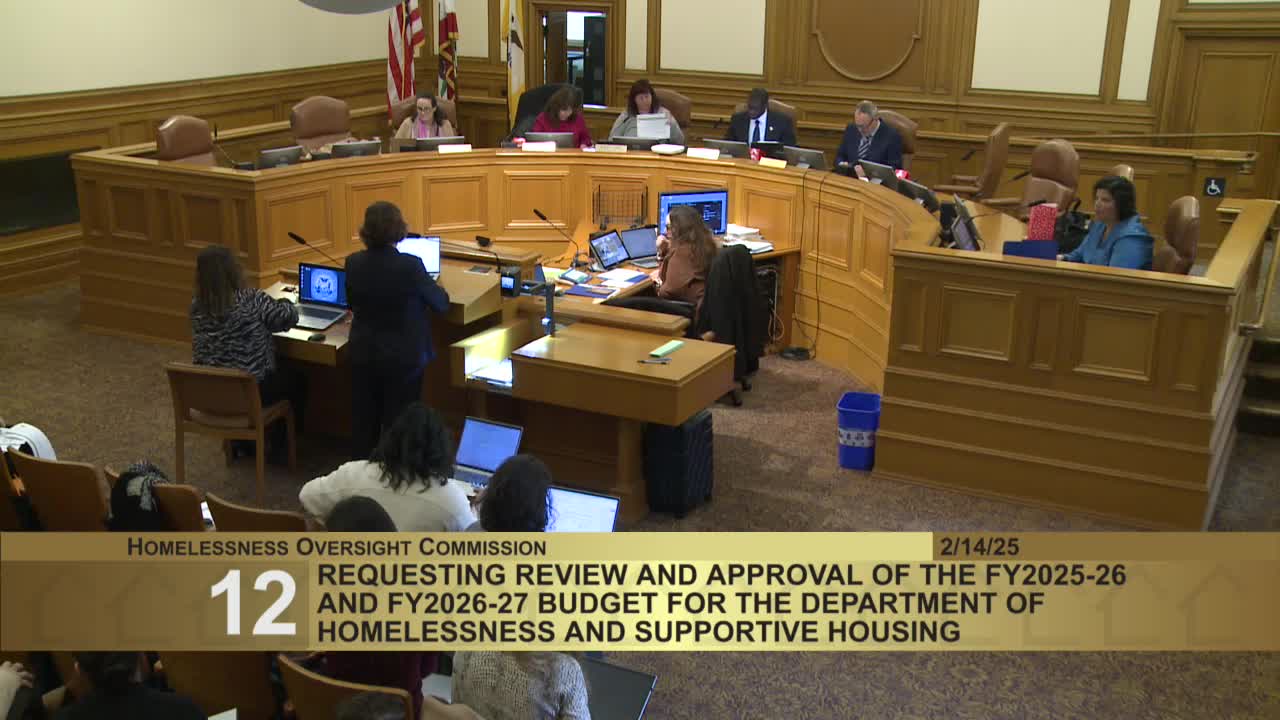
HSH budget proposal holds services steady despite large projected revenue drop; hiring freeze and salary savings planned
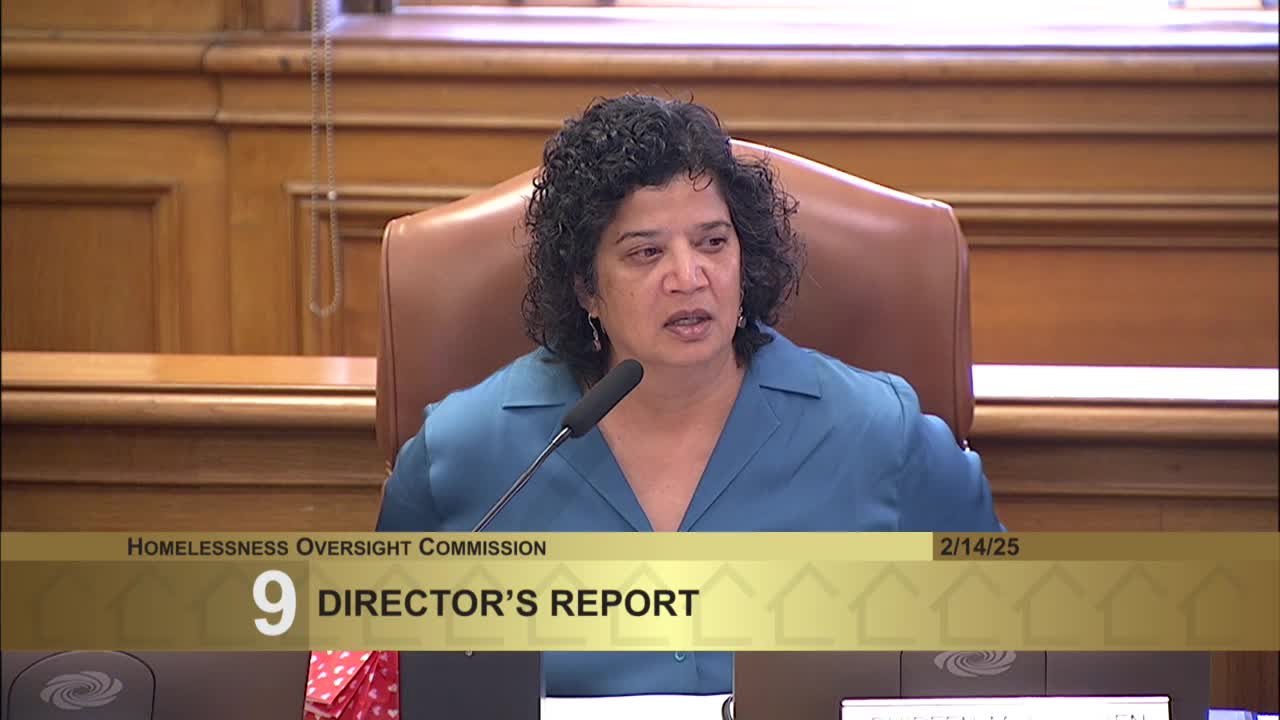
Gerald Commons contract approved for Bayview shelter: 60 cabins and RV spaces to serve up to 98 people
